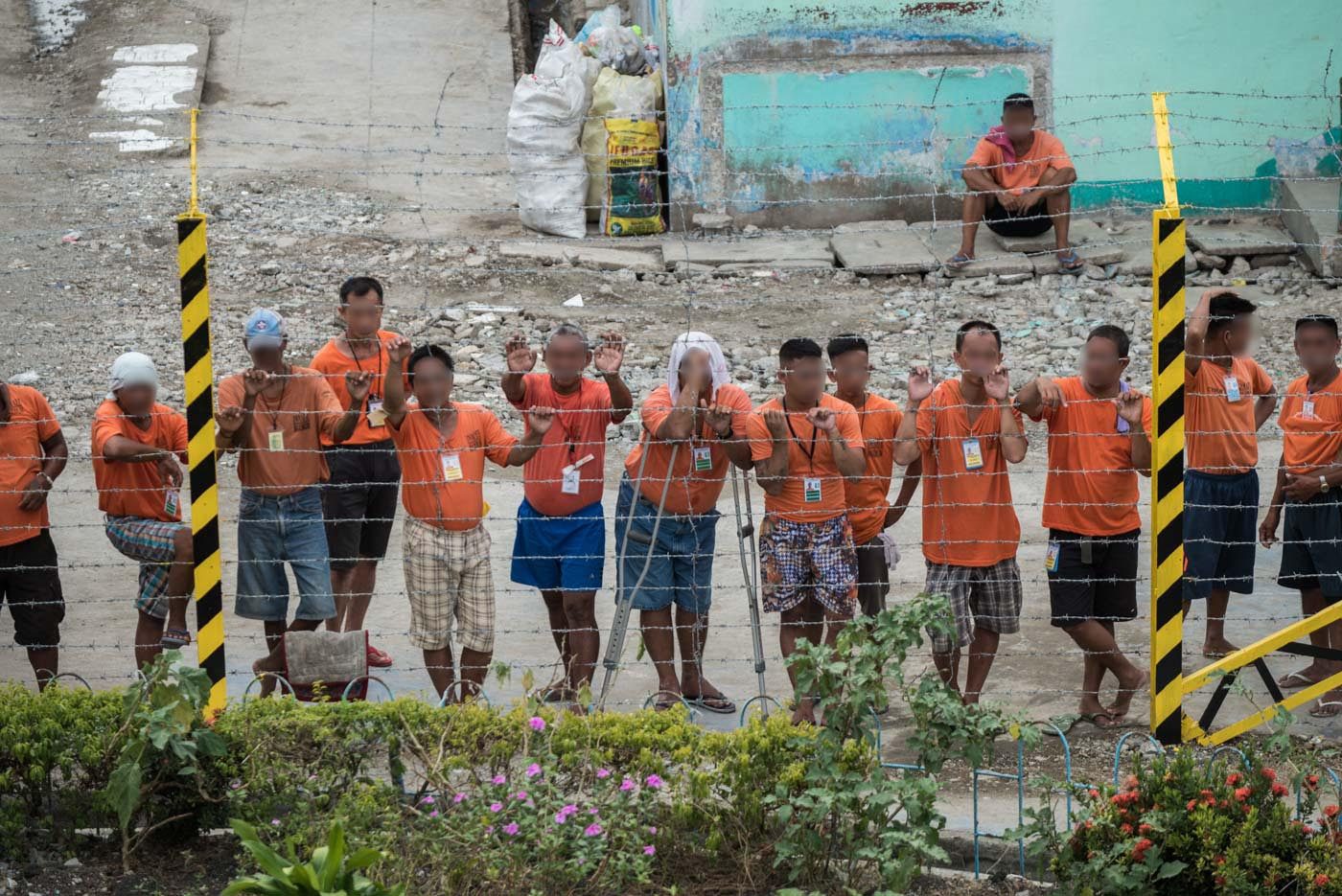SUMMARY
This is AI generated summarization, which may have errors. For context, always refer to the full article.

MANILA, Philippines – Although it may seem late, the Philippines takes a step closer to digitizing its criminal data system that aims to address a string of problems for the justice system.
The project proponent Department of Justice (DOJ) signed on Friday, January 10, Memoranda of Agreement (MOA) with other agencies in the justice sector such as the attached agencies to the DOJ, like Bureau of Corrections (BuCor) and Bureau of Immigration (BI); the Department of the Interior and Local Government (DILG) and its attached agency the Bureau of Jail Management and Penology (BJMP); and the technology provider, Department of Information and Communications Technology (DICT).
The NJIS will be a single portal that will have all data of prisoners and complaints against people under the jurisdiction of Philippine prosecutors.
The prisoners’ data portal is called the Single Carpeta System that aims to solve what has proven to be problematic record-keeping by the corrections and penology agencies, evident in the crisis spurred by the Good Conduct Time Allowance (GCTA) that saw the DOJ scrambling for information on its own prisoners.
“The thinking behind the NJIS preceded the GCTA but because of the GCTA problem, refinements were made in the NJIS,” said Justice Undersecretary Markk Perete, the undersecretary-in-charge of the NJIS.
Perete said the infrastructure is “up and ready but the data digitization and uploading will have to be completed still.”
“My understanding is it’s immediately operational, but its full benefits will depend on complete data digitization and uploading,” said Perete.
The Supreme Court has its own digitization efforts hampered by bureacuratic and political problems, highlighted during the impeachment of former chief justice Maria Lourdes Sereno who hired the consultant for the Court’s Enterprise Information Systems Plan (EISP). The consultant, Helen Macasaet, has been asked by the en banc to return the excess of her salaries after finding she was overpaid.
Another feature is data sharing for immigration purposes so those with pending charges and Hold Departure Orders cannot slip past immigration officers because the portal will be easily accessed.
Chief Justice Diosdado Peralta, in attendance on Friday, said the NJIS “is the first of its kind in the country.”
The Supreme Court is not part of the agreements.
Single carpeta
By having a unified online portal, all concerned agencies will have access to prisoner data, which will ideally compel authorities to make sure that those who need to be freed are freed, and those who should not be freed are not freed.
Perete said it will address the persisting problem of jail congestion.
“That would be one of the very perceptible and immediate impact of the better management of information because once you see that there are people languishing in jail who should be freed already then we’d be able to move faster to get them out of prisons,” said Perete.
There are also instances when a prisoner with multiple charges secures an acquittal or bail in one of the charges, and is freed even though the other charges should still hold the person in detention. The problem arises due to lack of easy access to information.
“The single carpeta system is your ICT solution to the perceived fragmented institutional framework of penology and corrections. The very idea of real time information exchange across agencies through the DICT technology is also groundbreaking,” said Peralta. (READ: In fractured justice system, a simple solution: Let’s talk)
Digitization of data
As agencies digitize their data, they would also have to ensure that the data is clean and consistent in the first place.
In the GCTA crisis, BuCor was slammed for its flawed records that led to the release of an erroneous list of 1,914 heinous crime convicts who were hunted to return. The DOJ is still reviewing all the returns and apprehensions that were made on the basis of the erroneous list.
“The conciliation of the records would have to be resorted to meaning reconciliation of the physical records and the mechanism would be all the agencies would have to discuss all these differences in the data to be able to come up with the accurate information data relating to that subject matter,” said Perete.
“Our job does not entail simply collecting information, our job is to make sure correct information and data promptly reach those entailed with the duty of dispensing justice,” said Justice Secretary Menardo Guevarra.
“As we have learned, data in the hands of those with ulterior motives can be manipulated and altered to the detriment of the public good,” Guevarra added, referring to the aborted release of rapist and murderer Antonio Sanchez, one of the supposed beneficiaries of the GCTA.
The lack of correct data led to the blunders of the Duterte government in the GCTA crisis with at least 5 GCTA returnees dying inside New Bilibid Prison in the last months. – Rappler.com
Add a comment
How does this make you feel?
There are no comments yet. Add your comment to start the conversation.